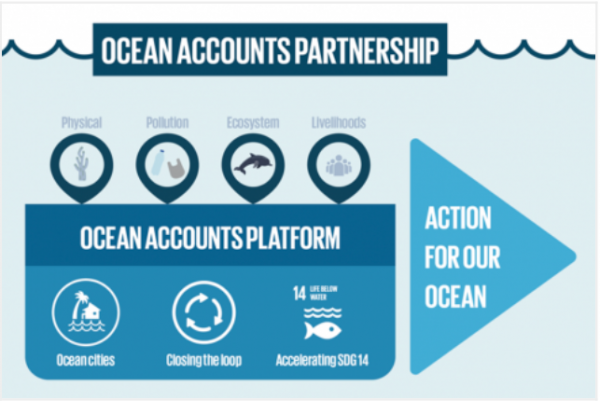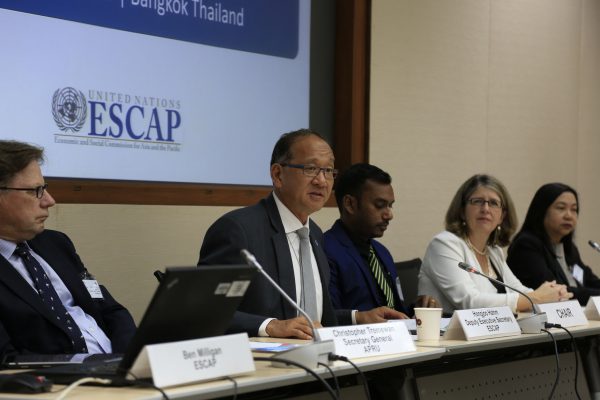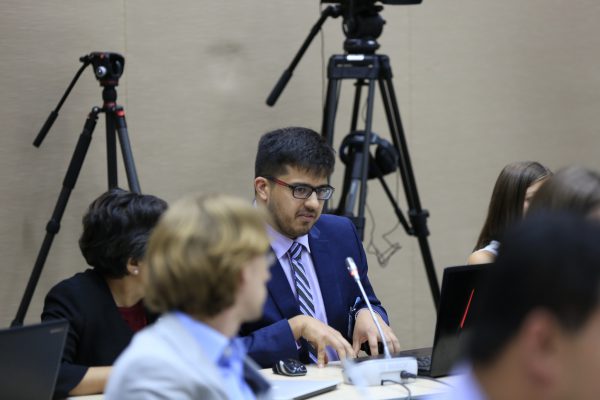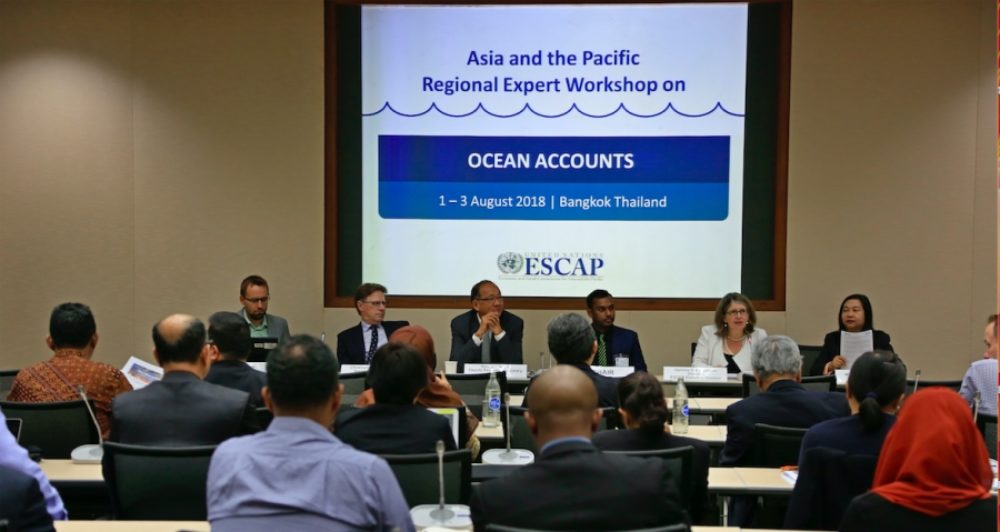August 1-3, 2018—Organized by ESCAP and UN Environment, the first Asia and the Pacific Regional Expert Workshop on Ocean Accounts was held at UN Conference Centre in Bangkok, Thailand. The development of an ocean accounts platform, based on the System of Environmental Economic Accounting (SEEA), was the focal point of discussion at the workshop.
The Ocean Accounts Platform will provide guidance on electing, prioritizing and standardizing data on the Pacific Ocean of national, regional and global importance so that it can be integrated, and thereby provide a comprehensive view. This requires a conversation among scientists, policy makers and statisticians.

The “Ocean Accounts Partnership” workshop provided guidance for testing in national pilot studies, including reviews of governance gaps and best practices. The results of the workshop will support regional case studies and contribute to the revision of the SEEA Experimental Ecosystem Accounting for 2020.
APRU’s Secretary General, Christopher Tremewan, opened the conference alongside UN ESCAP Deputy Executive Secretary, Hongjoo Hahm, UN ESCAP Statistics Division Director, Gemma Van Halderen, and Maria Corazon Ebarvia from PEMESEA. APRU Director of Policy and Programs, Christina Schönleber, led a science working group, providing input on the issues papers presented.

APRU experts from member institutions across 6 economies were also in attendance to contribute to the 2-day workshop and help shape its outcomes. The project lead from APRU’s first “Pacific Ocean Collaborative Cluster,” Gerald Singh, marine and science policy expert from The University of British Columbia, was a discussant on the issue of Disaster Risk and Climate Change. Mary George, Associate Professor from University of Malaya, participated in the discussion on Ocean Governance.

Healthy marine and coastal ecosystems contribute to inclusive development and poverty reduction, regulate the climate, and are essential for a more sustainable future. In a global effort to reverse the degradation of the Pacific Ocean caused by human activities, the UN has set Sustainable Development Goal 14 (SDG14), to conserve and sustainably use the oceans. ESCAP undertook, as part of the workshop, an assessment to better understand the capacity development needs in relation to SDG 14 in Asia and the Pacific to help inform its work in this area.
To support its voluntary commitment for the UN SDG14 in 2017, APRU is driving cooperation between leading experts, future leaders, policy makers and local communities to address the health of the Pacific Ocean and its marine and coastal resources.
APRU has been consistently leveraging its network capacities to contribute to the development of international standards for the measurement of the economic, social and environmental aspects of the ocean and coasts.
APRU’s effort includes:
– Engagement in the policy-making process of the experts workshop on illegal, unreported, and unregulated fishing in the APEC Region;
– Launch of the first “Pacific Ocean Collaborative Cluster” project;
– Publication of APRU Secretary General’s article, Life Below Water, in the winter edition of Forum Magazine;
– The 2017 APRU-The New York Times Case Competition on Climate Change and the Future of the Pacific Ocean.
APRU and UN ESCAP are now in talks to develop free-access mechanisms to a broad ocean data platform, which will help initiate regional action towards a healthy ocean future and also sustainable Asia-pacific communities. Furthermore, APRU has also started exploring synergies with UN ESCAP on key areas relating to sustainable cities development.
Click here to see the workshop photos.
Click here to view the videos and presentation slides.

